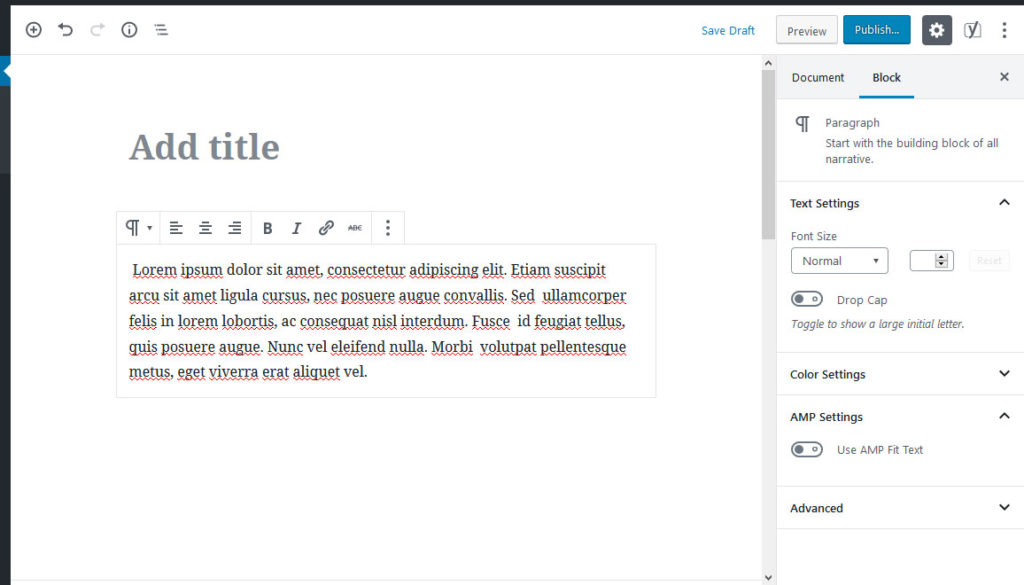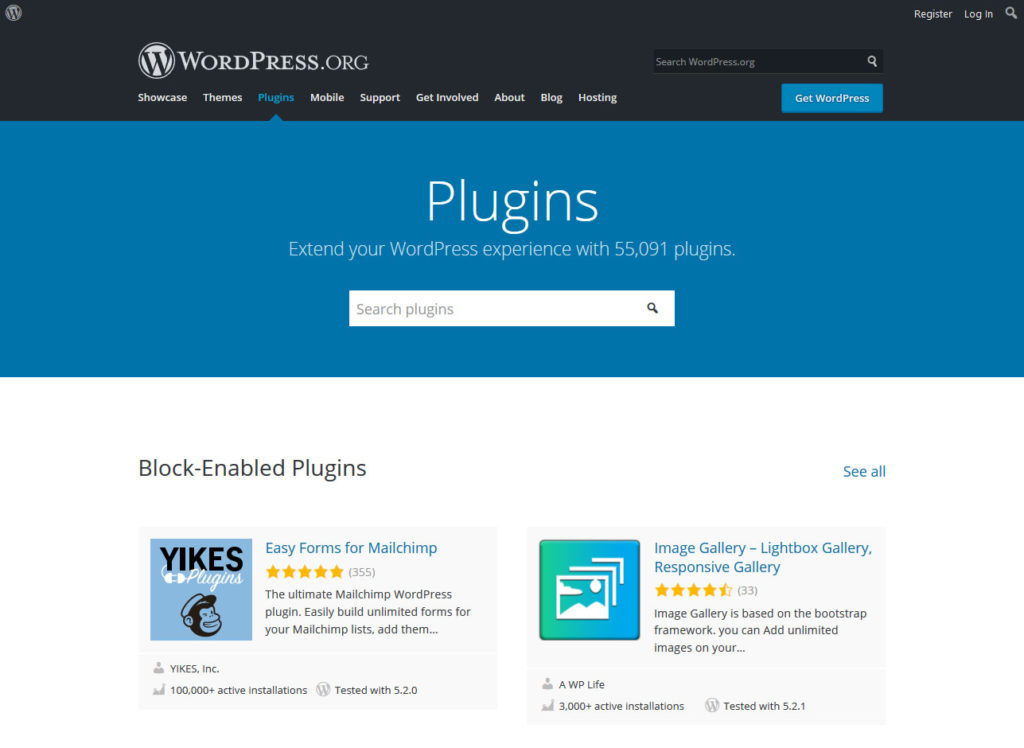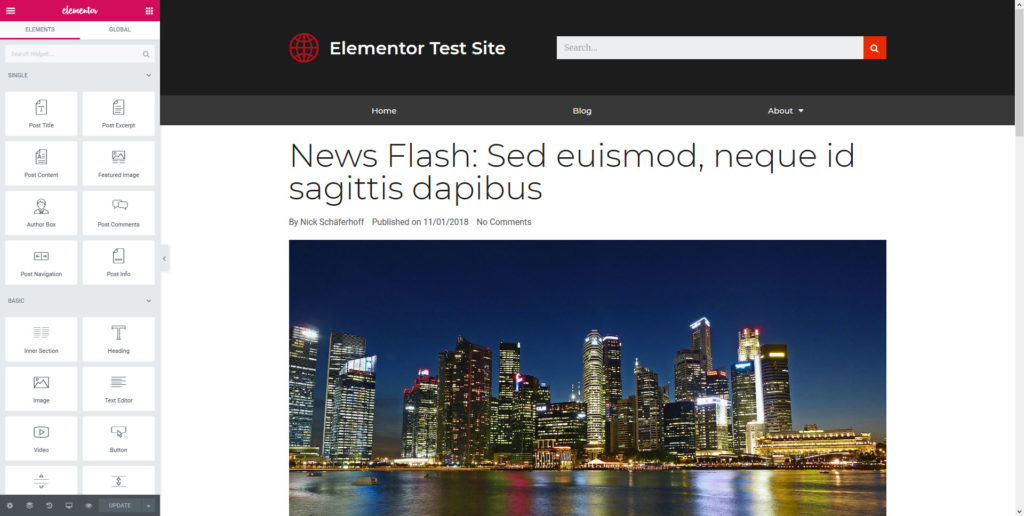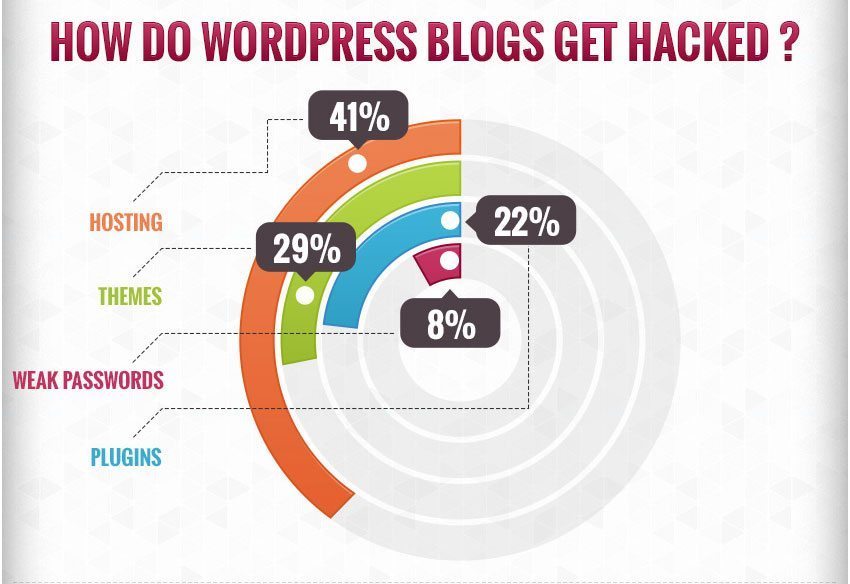Is WordPress the right platform for your startup site? In the process of searching for the perfect CMS for your startup company, you might have asked yourself that very same question.
The decision what system to base the website of your fledgling business on can be intimidating and confusing. After all, there are a number of alternatives, all with their own pros and cons.
Not to worry, we’re here to save the day like Superman. In this article, we’ll look at a number of reasons why you should consider using WordPress for your startup. In the end, we want you to feel informed enough to decide whether it’s the right choice for you or not.
Why WordPress is a Great Option for Startups
In the following, let’s look at some reasons why you should consider the WordPress platform for your startup website.
1. Affordable
First things first, many startups don’t have money. Unless you have procured funding, you’re probably bootstrapping your way up.
If so, it’s a good thing that, just like Jennifer Lopez’ love, WordPress doesn’t cost a thing. You can download it for free and use it for anything you want. As an open-source project, the platform does not belong to any one company but is built and maintained by a huge network of volunteers. As a consequence, the only up-front costs for your startup website are hosting and a domain.
In addition, there are loads of free plugins and themes to extend and customize your site at will, published under the same license. These represent thousands of hours of development time that you won’t have to pay for but whose results you can benefit from.
Should you opt for a premium extension, you can expect costs of $50-$250. This is still much more affordable than a proprietary system or paying someone to create something from scratch.
2. Easy to Use and Beginner Friendly
Especially in the beginning phase, most people in a startup end up wearing many hats. Consequently, there might be more than one person running the website. Or, alternatively, the person in charge might not be overly qualified and have to learn as they go along.
That’s okay because the WordPress platform is actually very beginner-friendly. Working with the back end is less complicated than running a Facebook page. You can achieve pretty much anything from one interface, including:
- Creating new pages
- Writing blog posts
- Posting third-party media like videos
- Changing the site design
- Adding functionality
- Managing media files
- Doing site maintenance
- Managing users and their capabilities
All of the above is doable with simple mouse commands and drag and drop. For example, the new main editor allows you to create complex designs with the ease of a word processor.

In case you ever do run into trouble somewhere, there is a huge support system out there in the form of forums, documentation, videos, and websites like this one. So, you’ll never be alone.
3. Extendable
Aside from being beginner-friendly, WordPress is able to grow into basically anything you want. The platform offers a great core product that you can enhance for your needs.
The WordPress plugin directory alone contains over 55,000 extension to add new features and functionality to your site.

This includes anything from Google Maps integration over social sharing buttons to payment gateways, contact forms, and membership capabilities. If you need anything for your startup website, chances are good it already exists. And that is in addition to the aforementioned premium plugins.
What’s more, WordPress connects to lots of external services. For example, thanks to auto embeds you can easily post third-party content like YouTube videos. Plus, with the new Gutenberg editor and the REST API, the platform is opening up even more to the rest of the web.
4. Ready for Your Branding
As a new startup, one of the ways to build a solid reputation, integrity, and identity is by creating a brand. In today’s world, any person should be able to look up your company on the Internet and find quality information about what it represents.
Thankfully, WordPress is completely customizable to your needs. You can apply any color scheme or font you want, include your company logo and adjust the site so that it fits your corporate design. Depending on your theme, you might even be able to do all of that without any custom CSS.
If this seems out of your capabilities, there are page builder plugins out there that allow you to customize any part of your site via drag and drop. That way, even if your startup has no web developer, you can still change anything you want.

5. A Powerful Marketing Machine
One common business adage is “build it and they will come”. It’s the notion that, once you create something of value, your customers will find you.
Unfortunately, in the crowded space that the Internet is today, this no longer applies. These days, in most industries, you have to shout at the top of your lungs just to get noticed. It’s hard work to get yourself in front of your customers

Fortunately, WordPress offers your startup all the tools to do that. For one, the platform is SEO friendly out of the box. That means, if you choose the WordPress platform for your fledgling company, your content will automatically be understandable to search engines.
In addition to that, it offers high-quality SEO plugins that can further improve the way you appear in search engines. This includes creating custom titles and meta descriptions which increase organic click-through rate.
The platform also comes with integrations for email marketing services like MailChimp, allowing you to build a newsletter from the start. Plus, WordPress content looks good in social networks, making it highly shareable.
In short, when it comes to inbound marketing, the platform gives you all the tools you need to succeed.
6. Able to Scale to Your Needs
At least at the beginning, most startups have only one goal – growth. Sure, there are other motivations to found a business, however, especially at the start, it’s all about growing to a certain size so the company can carry itself.
The good news is that, with WordPress, your website can grow right along with you. It allows you to start small and increase in size as needed.
How so?
First of all, the platform works on nearly any server from a basic shared hosting plan to high end dedicated servers.
Don’t believe it?
By now, about a third of the Internet is running on WordPress. These aren’t all just personal blogs and small business websites. They also include large sites like TechCrunch that deal with tens of thousands of visitors. And there are many more examples
So, if you find yourself needing an enterprise solution at some point, WordPress can do that as well. Plus, it helps you get to that point by being an excellent growth-hacking tool.
Also, with WordPress, you are not locked into one platform. With a self-hosted website, all data belongs to you and you can do with it what you want. Should you ever feel that you have outgrown WordPress, you don’t have to start again from scratch but can take what you have built with you.
7. Secure to Use
One primary concern of every site on the web is the issue of security, especially when it involves sensitive information or financial transactions. And for good reason. Anything connected to the Internet is inherently at least at some risk.
Unfortunately, due to its popularity, WordPress is also increasingly becoming a target for hackers. So, does that mean you should rather stay away from it?
No. First of all, the makers of WordPress are absolutely aware of this fact. As a consequence, they invest significant amounts in energy in keeping the platform secure.
For example, the dedicated expert security team monitors for any issues and quickly pushes out updates should anything pop up on their radar. With all modern WordPress versions, unless you have specifically switched it off, security updates are applied automatically.
A much bigger threat to the security of your site is actually yourself. Most breaches happen due to negligence and human error. However, that also means you can do a lot to keep that from happening. Detailed information in this post.

8. Mobile Friendly
These days, more people surf the web with their mobile devices than on desktop computers. As a consequence, any startup that hopes to be successful needs to cater to this user group. Google also actively punishes any website that does not do so.
How does WordPress support you in making your mobile users happy?
First of all, the platform is built with technology that any modern mobile device can handle without a problem. So, unlike people who still use Flash, your visitors will have no problem loading your site on their phone or tablet.
In addition to that, every theme in the WordPress theme directory is now required to be responsive. That means, they automatically resize to the dimensions of the screen they appear on. If that isn’t the case for your theme, you can still add it after the fact.
Plus, there are plenty of other things you can do to make your WordPress website mobile-friendly.
9. Great E-commerce Capabilities
The goal of any business is to make money. Startups are no exception. If your business model includes selling products or services on your site, WordPress is the CMS for you.
First of all, it offers a wide range of e-commerce extension that allows you to sling anything from cell phone cases to online courses. Here are just a few of them:
- WooCommerce (find a detailed tutorial here)
- Easy Digital Downloads
- WP eCommerce
- Ecwid Ecommerce Shopping Cart
The cool thing is that many of these come with extensions that allow you to add only the functionality you need. You can mix and match features and only have to pay for what makes sense.
Specialized e-commerce themes complement this list and make sure your shop looks slick, appealing and easy to use. Plus, there are other reasons to choose WordPress for your e-commerce site.
10. Ready for Teams
Finally, WordPress is great for collaboration. Ideally, you are not trying to get a business off the ground by yourself but have some people to share the journey with.
For those cases, WordPress comes with built-in roles and capabilities. They allow you to give everyone only as much access as they need. Doing so reduces the risk of someone accidentally messing up your fledgling site. Plus, you are able to create your own user roles if necessary.

In addition to that, there are lots of tools and plugins that further help with collaboration like Editorial Calendar or Edit Flow. You can find additional tools here.
Bottom Line: WordPress is Great for Startups
When first getting your startup off the ground, it can be pretty confusing what platform to use for your web presence. There are many valid candidates on the market.
Hopefully, the article above has helped you see that WordPress has a lot going for it for startup founders. Let’s summarize its benefits one more time:
- Doesn’t break the bank
- Easy to use for beginners
- Extendable and customizable
- Ready to represent your brand
- A great marketing tool
- Scalable
- Great security features
- Ready for mobile
- Full e-commerce capabilities
- Comes with collaborative tools
When trying to get a business off the ground, the last thing you should worry about is your website architecture. With WordPress, you don’t have to.
What is your favorite feature in WordPress for startups? Let us know in the comments section below!

No Comments